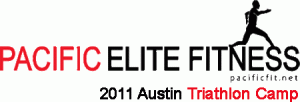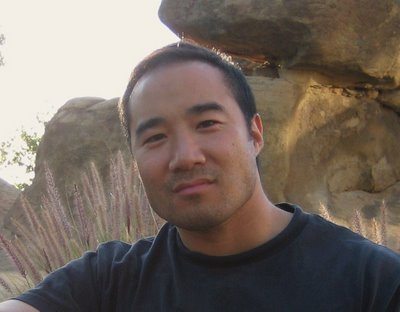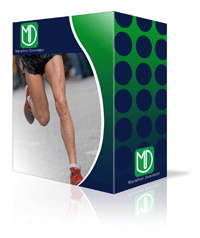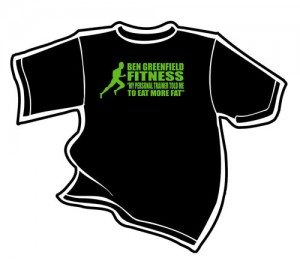August 4, 2010
Click here for the full written transcript of this podcast episode.
If you like this podcast, use the Facebook “Like” button above!
In this August 4, 2010 free audio episode: the top 5 fitness and nutrition myths, a free book from Ben, tips for altitude exercise, training for a marathon with injuries, product reviews of Amino Vital, Kona Endurance, Animal Pak and testofen, good running drills, training in humidity, TRX training, making seeds more digestible, avoiding carbs before bedtime, is too much protein dangerous, doing multiple triathlons in a row, how to find a good natural physician, training with a broken collarbone and taking vitamin K.
Remember, if you have any trouble listening, downloading, or transferring to your mp3 player just e-mail [email protected]. And don't forget to leave the podcast a ranking in iTunes – it only takes 2 minutes of your time and helps grow our healthy community! Justclick here to go to our iTunes page and leave feedback.
Scroll down to donate anything over $15 to the show, and Ben will send you a BenGreenfieldFitness.com t-shirt…you can also conveniently donate any amount with your phone by simply clicking here.
—————————————————–
Featured Topic: Alan Aragon
In today's featured topic, Ben Greenfield interviews Alan Aragon about the top five myths in fitness and nutrition. Alan has bachelor and master of science degrees in nutrition, is a writer for Men's Health magazine and a personal consultant to many professional athletes and fitness professionals. Included in this interview:
Is eating clean a myth?
What you need to know about the Paleo diet.
Are you wasting your time with post-workout nutrition?
Can you trust fitness and nutrition science?
And much more!
During the interview, Ben highly recommends Alan Aragon's “Research Review”, which you can access by clicking here. If you have comments on the interview with Alan, then leave them below!
——————————————————-
Special Announcements:
-Contact [email protected] if you or your business want to sponsor the transcription of the podcast episodes – and get your advertising and banner on all podcast transcription notes!
-Think forward to your training next January…Will you be tired of the indoor trainer and the treadmill and that black line on the bottom of the pool? Are you going to be struggling to stay motivated for those wet 5-hour slogs in this rainy/snowy winter climate? Are you planning on ANY 2011 triathlon event from Olympic distance up to Ironman? Then this event is going to be perfect for you. Pacific Elite Fitness is proud to announced an Official 2011 Triathlete Training Camp, January 31-February 7, 2011 at the Endurance Ranch in Austin, Texas! Click here for more details or to register now.

– Join Ben to race a double triathlon in Thailand.! Week 1: Laguna Phuket Triathlon; Week 2: Ironman 70.3 Thailand. Ben can still get you into the sold-out race AND organize your entire trip, but you must e-mail him at [email protected] within the next week.
 – Get insider VIP tips and discounts from Ben – conveniently delivered directly to your phone! Just complete the information below…
– Get insider VIP tips and discounts from Ben – conveniently delivered directly to your phone! Just complete the information below…
Listener Q&A:
Do you have a question for Ben? Just click Ask a Podcast Question at the bottom of this page and leave a voicemail, leave a Skype voicemail to username “pacificfit”, or e-mail [email protected].
Alecio asks:
1. If I live and train at an elevation between 5000 and 9000 feet but race at sea level how will my heart rates differ and how should I change my racing?
2. The next question is regarding cardiac drift? Can you talk a bit about it and how ironman or endurance racing is affected by it?
Addy asks: I am only about 7 weeks into a 16 week marathon training program for a marathon I am planning on running in October. I have missed the last THREE weeks of running due to foot injuries and was finally diagnosed this morning with tendinitis in both feet. I was told to take yet another week off. Am I screwed for my marathon? Will cycling keep me on track? And if so, in order to accumulate my running mileage, do I just double the length of my rides to equal the length of my running?
I thought maybe I could try aqua jogging too, but I'm not sure how to track distance in the water.
Twitter user Franks asks: @bengreenfield whats ur take on Amino Vital Product (Pro r er7500) for Distance runners? Training 4 a Full.
Listener Christine asks: Ben, I am training for a November ironman in northern Florida. I live in Miami where it is ungodly hot. The long rides on the weekend are particularly tough to get through. I use Hammer Endurolytes and lots of water and Gatorade. Any suggestions for training in such humidity?
Listener Mindy asks: What is your opinion of TRX suspension training? It looks like it can completely replace my normal routine of resistance band training and bodyweight exercises – is this a good idea, or should I keep mixing it up with different pieces of equipment? I prefer to exercise outdoors and I feel that TRX suspension offers a lot more variety than flat ground or playground equipment.
Twitter user sairbear asks: @bengreenfield what about running drills? Each week I do repeats of knee lifts, butt kicks, side glides & others over 25m. Are they useful?
Listener Richard asks: Every night I grind pumpkin, sunflower and linseed with my coffee bean grinder for breakfast for my family the next day. I soak the seeds over night often in dilute lemon juice. The question I have is if there is anything more I can do to make the seeds more digestible or if there is anything else I need to be aware of when using seeds?
Listener Kai asks: In episode 104’s interview with Brendan at one point says that you don’t need as many kCal if you consume higher quality / raw foods. What is your take on this? In episode 104 one listener asked about certain supplements to aid with hiking at elevation (lived at sea level, going to CO). Would those same supplements help with running at altitude? I travel to Boulder quite a bit and my runs are really slow there, which I assume is attributable to the elevation / oxygen level.
Twitter user BanksH asks: @bengreenfield whats your take on the effectiveness of the kona endurance products for improving AT?
Listener Robert asks: Is there any study or proof that using a protein shake will cause pancratitis? The reason I ask is on Sunday, July 25th I went for my training ride and when was done I had a protein shake. About an hour after this I was in so much pain I went to the E.R. and after a heart test and a blood test they told me my pancreatic enzymes were 5 times higher than what they should be.
Listener Paul asks: I have seen ads for a supplement (Mdrive4men) that contains testofen from Fenugreek seed. It is supposed to raise testosterone. As an older athlete (62 yr. old), this interests me. Always looking for an edge over my running and biking buddies. I'd be interested in your thoughts on testofen and raising testosterone in older athletes.
Listener Chuck asks: I have 3 half Ironman races coming up. The first is September 11th then a 3 week break, another October 2nd (HalfMax Championships), and then a 2 week break finishing with Austin 70.3 on October 16th. So that's 3 within 5 weeks. How do I structure my training around these races to perform optimally at all of them? They are all A races (well I'd like them to be) for me and they are all championships and qualifiers. What changes should I make beginning now in terms of races that I am doing as well?
Listener Bob asks: Can you give some advice for finding a general doctor that agrees with the things talked about on your podcast? I am looking for a Dr. that agrees with or at least will support and understand the holistic lifestyle, supplements, etc. What questions do I ask or is there a website or a membership designation I should look for when searching?
In my response to Bob, I mention http://www.acam.org
Timothy asks: I heard that you are not supposed to eat before bedtime, especially carbs because it inhibits your bodies natural production of HGH. Is this true, and does your body produce HGH while you sleep?
Brad asks: Ben could you please review the product Animal Pack as a multiple vitamin. My gym friends swear by them because of the large percentages of RDA vitamins and the resulting fluorescent urine. I am skeptical about Animal Packs effectiveness. Please settle the debate.
Listener Mark asks: I just started listening to you podcasts and they are great- a lot of good information on many topics. I would appreciate some training advice – I broke my collarbone in a bike crash about 4 weeks ago. I am registered for the BAA Half Marathon on October 10. I am not supposed to run for another 3 weeks and have been doing spinning and elliptical trainer. Any other suggestions on building my base until I can start running and, when I do start running, how hard should I train. (I run about a 2 hour half and cycle more than I run in the summer)
In my response to Mark, I mention http://www.allegromedical.com/orthopedics-orthotics-c528/figure-8-clavicle-splint-p557956.html and this article: http://ironman.com/events/ironman/ironman-world-championship/toughing-out-the-ironman
Listener Lorie calls in and asks if Vitamin K supplements would be beneficial for bone density after being on a proton pump inhibitor from ibuprofen related ulcers. In my response to Laurie I also mention magnesium from Natural Calm.
In my response to Lorie, I recommend Phenocane as a natural alternative to ibuprofen.
Do you have a question for Ben? Just click Ask a Podcast Question at the bottom of this page and leave a voicemail, leave a Skype voicemail to username “pacificfit”, or e-mail [email protected].
——————————————–
Remember, if you have any trouble listening, downloading, or transferring to your mp3 player just e-mail [email protected] And don't forget to leave the podcast a ranking in iTunes – it only takes 2 minutes of your time and helps grow our healthy community! Justclick here to go to our iTunes page and leave feedback. Brand new – get insider VIP tips and discounts from Ben – conveniently delivered directly to your phone! Just complete the information below…
| First Name | |
| Last Name | |
| Cell # (1+area code): | |
Scroll down to donate anything over $15 to the show, and Ben will send you a BenGreenfieldFitness.com t-shirt…you can also conveniently donate any amount with your phone by simply clicking here.
——————————————————





even simple to meaningful for the information, pay attention here all the time and wait for your update!
Thermage is an anti-aging treatment that uses the application of heat to tighten and contour the skin. According to Thermage's website, the procedure will soften wrinkles, firm sagging skin, and contribute to a youthful appearance. In other words, Thermage joins a long line of treatments and products promising a temporary but effective fountain of youth.
The stainless steel Perforated Metal Applications are widely applied in automotive components, external decoration, balconies, staircases, windows and doors, roads and other outdoor products, and can be used to ceilings, panels, wall panels, interior walls and other interior decoration.
nice information…
thanks for this information..
its realy educats meeeeee.
mensagens de carinho
I frankly imagine that the specifics specified is related to almost all people . Thank you so much .
Washington DC Locksmith
Hi Ben:
You mentioned in one of the replies to Q&A to search on an article of yours called "how to kill your stomach acid". I did on the Search Entire Site box at the top but nothing came up. Am I looking in the wrong place? Thanks,
Alex
https://bengreenfieldfitness.com/2010/07/why-k…
I personally liked Alan's more broad approach to eating than being so extreme as previous guests have been. I agree he was a bit vague and perhaps could have backed it up by quoting some recent research but as a whole it was a nice change from the 'all or none' mentality of the latest nutritional plans that we hear so often. Absolute anything is not good and it's not fun either.
Ben, Alan was adamant that the timing of meals had no correlation to metabolic rate as commonly believed and he implies therefore that there is no benefit to eating more frequent, but smaller meals as opposed to the same calorie consumption in 3 meals a day. The only justification for his opinion that I can remember from the interview is that there is no difference in the thermogenic effect of frequent smaller meals as opposed to the same calorie consumption in 3 meals a day. I am sorry but I don't buy what he is selling!!! First of all there is much more to it than the comparative thermogenic benefits of the timing of meals. Maintaining even insulin levels, the physiologic benefits of eating before you are ravenous thereby avoiding getting overfull before satiation and modifying your behavior towards eating smaller portions are just a few of the benefits. I am a guy who spent 30 years of his life having a "roller coaster" body weight before I committed to reducing body fat and adding lean mass through exercise and nutrition. At the age of 51(eight years ago) I went from about 24% body fat and 185lbs scale weight to about 7% body fat and 142lbs. There is no doubt in my mind that changing not only what I ate but when and how FREQUENTLY I ate were key factors in that change.
Do you really agree with Alan's position on the frequency of "feedings" as I call them???
I think when you said "physiologic" you meant "psychologic"? If so, I agree.
Whoa Ben!
Alan goes against all the studies and theories we have read about post workout feeding. For the last 20 years we have been told to eat within 30 minutes or at least within 1 hour to assist recovery, perpetuate muscle growth and restock glycogen stores. Alan says even after 2 hours of training all I need is to rehydrated?? Ben please comment.
Andrew, see my musings and thoughts here: http://www.rockstartriathlete.com/the-post-workou…
Alan is obviously very credible and knowledgeable, I'd like to hear him comment on trying to optimize health and performance as opposed to basically telling you what you can get away with. He says that post workout nutrition could give you a benefit, so then why wouldn't you take advantage of that benefit? He points out that some people have issues with grain, (more do than they realize since testing is not very accurate until major problems have set in), so why not cut out grain? Check this out: http://hunter-gatherer.com/blog/team-garmin-goes-…
Even if one were to not be eating to optimize performance, but rather just eating to be as healthy as possible one would be better served eating more nutritionally dense foods (veggies vs grains). Grains fall short in nutrient content compared to animal products and produce. Alan only mentioned micronutrients ONCE in the whole interview. I really think its a mistake to say that macronutrient consumption is the end all be all when looking at someone's diet. Like I said, I believe that if Alan was to give recommendations on how to perform better, increase health, and really try to thrive he would have had different arguments. He sounds like he's is trying to see what you could get away with rather than shooting for optimization.
I don't think a person eating only paleo foods would be missing *anything*, except the joys of eating bread-based products such as peanut buter on toast and neo-lithic foods like spaghetti with meatballs. That's one of the reasons I'm not strict paleo. I just can't give some of that tasty stuff up that I think is OK now and then…vs. the paleo perspective that you're going to destroy your gut for months after eating something like that.
Alan bashes paleo, ok fine. He goes on and on, but he never makes a reasonable argument against it. Exactly what would a person eating only paleo foods be missing?